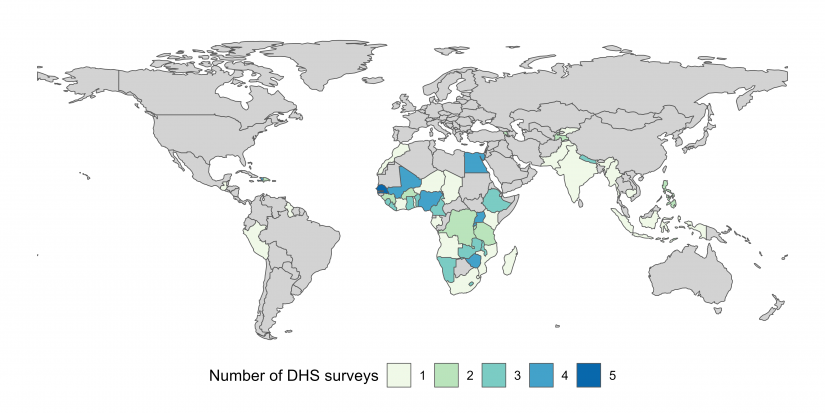Researchers at UC San Diego report that “precipitation shocks,” whether droughts or flood-causing rains, can increase rates of diarrheal diseases among children in tropical low-to- middle-income countries.
Such impacts are preventable and the research team also identified the types of interventions that could mitigate children’s vulnerability to such illnesses depending on the kinds of weather extremes they faced.
“Extreme weather events pose enormous risk to the health of people, particularly those living in poor conditions and lacking the resources to seek healthcare,” said study lead author Anna Dimitrova, a postdoctoral researcher at UC San Diego’s Scripps Institution of Oceanography. “We urgently need to find cost-effective solutions that increase resilience against the impacts of climate change.”

The study addresses an affliction that led to the deaths of 450,000 children in 2016, mostly in developing countries. Droughts and extreme precipitation events are becoming more common as a consequence of climate change. Both present risks: Droughts can lead to malnourishment and force people to seek drinking water from contaminated sources. Heavy rains increase exposure to bacteria species associated with gastrointestinal infections as the pathogens get into drinking water supplies or groundwater.
Researchers Anna Dimitrova, Alexander Gershunov, and Tarik Benmahrnia of Scripps Oceanography; and Morgan Levy, who has a joint appointment between Scripps Oceanography and the School of Global Policy and Strategy at UC San Diego, report their findings in the journal Proceedings of the National Academy of Sciences in its Jan. 9, 2023 issue.
Dimitrova and colleagues reached their conclusions by comparing survey data of more than 600,000 children in 51 low- and middle-income countries with climate trends in the places where the children live.
The team suggests that interventions can be designed with specific climate hazards in mind. Improvements in hygiene practices and provision of clean drinking water can be effective in areas prone to flooding. An important finding is related to how vaccinations for rotavirus, one of the few vaccine-preventable diarrheal pathogens, might almost eliminate risks in drought-stricken areas though the researchers acknowledge that more study is needed. They also investigated other actionable factors including child feeding and stool disposal practices.
The researchers stress the importance of designing cost-effective adaptation strategies to reduce the health impacts of exposures among the most vulnerable. For instance, improving education on how to treat water during heavy precipitation events, especially in households that have access to piped water, could make significant improvements. Many people in the surveyed areas lack awareness that the water supply to their homes can be degraded during such events.
Next steps should include identification of the most promising strategies in each geographical area to reduce risks as historically dry regions become drier and wet regions become wetter, the researchers said.
About Scripps Oceanography
Scripps Institution of Oceanography at the University of California San Diego is one of the world’s most important centers for global earth science research and education. In its second century of discovery, Scripps scientists work to understand and protect the planet, and investigate our oceans, Earth, and atmosphere to find solutions to our greatest environmental challenges. Scripps offers unparalleled education and training for the next generation of scientific and environmental leaders through its undergraduate, master’s and doctoral programs. The institution also operates a fleet of four oceanographic research vessels, and is home to Birch Aquarium at Scripps, the public exploration center that welcomes 500,000 visitors each year.
About UC San Diego
At the University of California San Diego, we embrace a culture of exploration and experimentation. Established in 1960, UC San Diego has been shaped by exceptional scholars who aren’t afraid to look deeper, challenge expectations and redefine conventional wisdom. As one of the top 15 research universities in the world, we are driving innovation and change to advance society, propel economic growth and make our world a better place. Learn more at ucsd.edu.